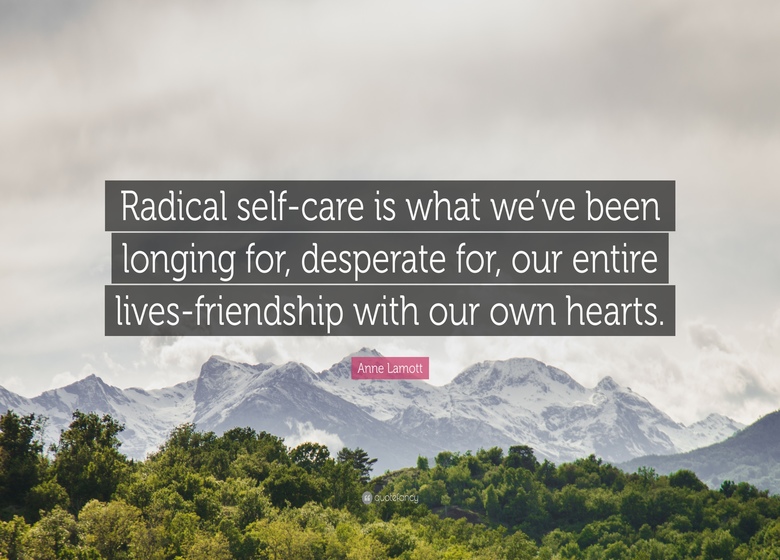Simple Self-Care Tips For A Better Mental Health
It’s true that we all lead a pretty busy life. We hardly get the time to pamper ourselves. When we do get the weekends off, it usually flies away while we reconcile with the long list of family and friends. So where does one slip in the time for self-love and care?
It’s not so tough if you really set your mind on it. You don’t have to follow steps if you already have a plan but some times a little help is no bad.
Go on to read some healthy ways you can take the time out for self-care.
-
Wake up early
Have an intention on your mind when you wake up. It is very important how your day starts. Every day brings a choice: to practice stress or to practice peace. You don’t have to wake up before the sun rises but earlier than your usual time. Research has shown that early risers are more optimistic, conscientious, and anticipatory when it comes to problem-solving.
-
Check in with your thoughts
You must have heard this already that your thoughts become your actions. Conventional wisdom says that our feelings control our thoughts, but it’s actually the other way around: our thoughts precede our feelings. Complicating matters is the fact that our thoughts are often automatic, quick, and unconscious. The beauty of being mindful is learning how to manage your thoughts so they don’t manage you. Try to breathe in and out deeply and focus on your breath each time your thoughts seem to go out of control. It helps.
-
Make time for physical activity
Physical activity does not always mean a full on workout (unless that is what works for you). Even walking or stretching is a great way to start your day. You can set a time for such physical activity according to your schedule. Moving your body kick-starts your metabolism and releases the “feel good” hormone, serotonin, which helps relieve stress and increase self-confidence. Additional benefits of exercising includes feeling more alert, productive, and creative throughout the day.
-
Say NO
You are an adult now and you must choose what to say No to, and say No. It’s important to tell what you really feel about things. Boundaries are the key to self-care and happiness. People-pleasers have an especially difficult time with setting limits on their time and resources. A helpful re-frame to remember is when you say ‘No’ to one thing, you’re saying ‘Yes’ to another. And hopefully that includes incorporating something else on this list!
-
Connect with your loved one
We often connect the word ‘love’ to a romantic partner. But in reality, a loved one is anyone with whom you feel comfortable and happy. It can be a family member, a friend, your husband/wife or even your pet. Humans are wired to connect. Studies abound about the devastating effects that loneliness has on our mental and physical health. Research also shows that relationships can improve health by helping us manage stress, improve immune system functioning and giving meaning to our lives.
-
Practice slow, deep breaths
Breathing is your best defense against panic attacks. It helps you a lot to remain calm. We don’t generally concentrate on our breathing pattern when we are going on with our day to day lives. This is a sign for you to relax and breathe and count each breath literally.
-
Be true when you speak or act
It is normal to feel that you don’t want to talk about what you feel. You go on pretending instead and distracting yourself from the truth. The primary goal of therapy is to get clients to acknowledge the truth. As painful and messy as that can be, nothing beats saying what you mean and doing what you say to get on the right side of authenticity and a meaningful existence.
-
Responsibility of emotions
Passive-aggressive behavior is among the most toxic of all personality traits. While we’re all entitled to feel angry and wronged from time to time, taking responsibility for our emotions and actions is a crucial step to adopting a mentally healthy mindset.
-
Be kind
We often get into ourselves so much sometimes that we forget that there are hundred others who may be going through some of their own issues. You need to cut them some slack and be more understanding and kind. Because it costs nothing to be a decent person.
-
Laughter is the best medicine
Laughter strengthens your immune system, increases energy, diminishes pain, and protects you from the toxic effects of stress. It is the most effective and free of any cost medicine for emotional wellness.
The other major five types of self-care are noted below and the ways to achieve them.
Physical self-care
Activities that help you to stay fit and healthy, and with enough energy to get through your work and personal commitments.
- Develop a regular sleep routine.
- Aim for a healthy diet.
- Take lunch breaks.
- Go for a walk at lunchtime.
- Take your dog for a walk after work.
- Use your sick leave.
- Get some exercise before/after work regularly.
Psychological self-care
Activities that help you to feel clear-headed and able to intellectually engage with the professional challenges that are found in your work and personal life.
- Keep a reflective journal.
- Seek and engage in external supervision or regularly consult with a more experienced colleague.
- Engage with a non-work hobby.
- Turn off your email and work phone outside of work hours.
- Make time for relaxation.
- Make time to engage with positive friends and family.
Emotional self-care
Allowing yourself to safely experience your full range of emotions.
- Develop friendships that are supportive.
- Write three good things that you did each day.
- Play a sport and have a coffee together after training.
- Go to the movies or do something else you enjoy.
- Keep meeting with your parents’ group or other social group.
- Talk to you friend about how you are coping with work and life demands.
Spiritual self-care
This involves having a sense of perspective beyond the day-to-day of life.
- Engage in reflective practices like meditation.
- Go on bush walks.
- Go to church/mosque/temple.
- Do yoga.
- Reflect with a close friend for support.
Relationship self-care
This is about maintaining healthy, supportive relationships, and ensuring you have diversity in your relationships so that you are not only connected to work people.
- Prioritize close relationships in your life e.g. with partners, family and children.
- Attend the special events of your family and friends.
- Arrive to work and leave on time every day.
Self-care is a personal matter. Everyone’s approach will be different.
Once you have created a self-care plan it is important to ask yourself, “what might get in the way?” What can you do to remove these barriers? If you can’t remove them you might want to adjust your strategies. Think honestly about whether any of your strategies are negative and how you can adjust your plan to avoid or minimize their impact.
Also read – How to help someone struggling with mental health?











